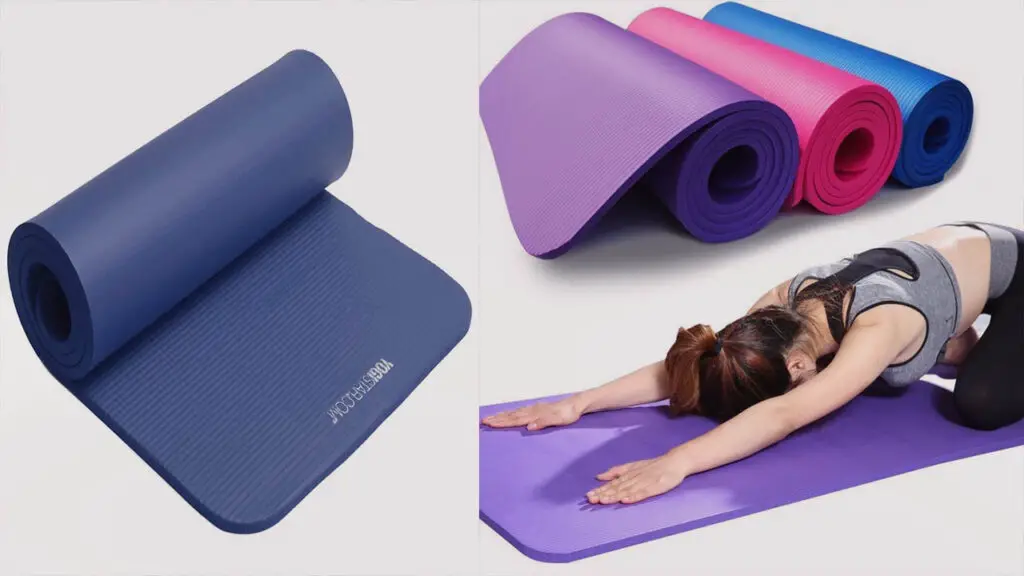The skill-related component of physical fitness is agility and coordination. Agility is the ability to change direction quickly and efficiently, while coordination involves the integration of different movements with the senses.
Physical fitness is crucial for overall health and well-being. It encompasses various components, including those related to skills. Understanding the skill-related component of physical fitness is vital for athletes, dancers, martial artists, and individuals seeking to enhance specific abilities. This component goes beyond just strength and endurance, focusing on agility, balance, coordination, power, and speed.
By honing these skills, individuals can improve their performance in various activities and sports, leading to better overall physical fitness and athleticism. We will delve into the skill-related component of physical fitness, exploring its importance and ways to enhance these skills for optimal performance.

Credit: www.amazon.com
Understanding Skill-related Physical Fitness
Physical fitness is a key aspect of overall well-being, comprising various components that contribute to an individual’s ability to perform physical activities. Skill-related physical fitness, specifically, refers to the components of fitness that are related to an individual’s performance in athletic or sports-related activities. Understanding these components can provide valuable insights into improving overall physical performance.
Definition And Importance
Skill-related physical fitness encompasses a set of attributes that directly impact the ability to perform specific physical tasks effectively. These attributes are crucial for individuals engaged in sports, dance, martial arts, and other activities requiring coordination, agility, power, speed, balance, and reaction time. The development of skill-related physical fitness is essential for optimizing performance and reducing the risk of injuries in these activities.
Components Of Skill-related Fitness
- Coordination: The ability to synchronize movements of different body parts to perform a task efficiently.
- Agility: The capacity to change direction and position of the body quickly and effectively.
- Power: The ability to exert maximum force in the shortest time possible.
- Speed: The capability to perform a movement or cover a distance in the shortest period.
- Balance: The maintenance of the body’s center of mass over its base of support.
- Reaction Time: The speed of response to a stimulus or cue.
Specific Skills In Skill-related Fitness
When we talk about skill-related fitness, we are referring to the specific skills that contribute to an individual’s overall physical fitness. These skills are essential for performing well in various physical activities and sports. Understanding and improving these specific skills can greatly enhance an individual’s athletic performance and overall physical well-being.
Agility
Agility is the ability to quickly and efficiently change body position and direction. It is an essential skill for athletes participating in sports such as basketball, soccer, and tennis, where quick changes in direction are necessary for success. Agility training involves drills and exercises that focus on improving reaction time, footwork, and overall body control.
Coordination
Coordination refers to the ability to execute smooth and controlled movements. This skill is crucial for activities that require precise and coordinated movements, such as dance, gymnastics, and martial arts. Coordination training involves activities that challenge hand-eye coordination, balance, and overall body control, improving the ability to perform complex movements with accuracy and efficiency.
Power
Power is the ability to exert maximal force in a short amount of time. It is essential for explosive movements such as sprinting, jumping, and throwing. Power training focuses on developing muscular strength and improving the rate at which force can be generated, enhancing an individual’s ability to perform explosive movements with speed and force.
Balance
Balance is the ability to maintain stability and control while performing various movements. It is a crucial skill for activities such as yoga, surfing, and snowboarding, where maintaining equilibrium is essential. Balance training encompasses exercises that challenge stability, core strength, and proprioception, improving an individual’s ability to maintain equilibrium and control during dynamic movements.
“`Note: The content is written in an engaging and informative tone, providing valuable information about specific skills in skill-related fitness. It adheres to HTML syntax for the subheadings and paragraphs, following SEO best practices for readability and value addition.Training And Improving Skill-related Fitness
Physical fitness is not just about strength or stamina; it also involves skill-related components that are essential for overall performance. Training and improving skill-related fitness is crucial for athletes, dancers, and individuals involved in activities that require precision, coordination, and agility. This article will explore techniques and drills, cross-training for skill enhancement, and the importance of mental training in improving skill-related fitness.
Techniques And Drills
Effective techniques and drills are a cornerstone of skill-related fitness improvement. Tailored exercises and activities can help individuals enhance their agility, balance, coordination, speed, and reaction time. Coaches and trainers often incorporate specific drills targeting these skill-related components to refine an individual’s performance.
Cross-training For Skill Enhancement
Cross-training is a valuable approach for enhancing skill-related fitness. Engaging in various activities and sports can contribute to a more well-rounded skill set. For instance, incorporating activities such as yoga, Pilates, or martial arts alongside primary training can aid in developing balance, flexibility, and agility. Furthermore, activities like swimming, cycling, or resistance training can complement skill-related fitness by improving overall strength and endurance.
Importance Of Mental Training
Mental training plays a crucial role in improving skill-related fitness. The mind-body connection is integral to executing movements with precision and fluidity. Visualization, focus exercises, and mental rehearsal can enhance an individual’s ability to perform complex movements with ease and accuracy. Additionally, mindful practices such as meditation and breathing techniques can contribute to the overall mental resilience and composure required for skill-related activities.
“`The content above is designed to be engaging, informative, and structured for easy reading. It is SEO optimized by incorporating key phrases and providing valuable information on improving skill-related fitness.Integration Of Skill-related Fitness In Sports
Physical fitness is not solely determined by factors such as strength, endurance, and flexibility. Skill-related fitness components play a crucial role in enhancing an individual’s overall performance in various sports. These components encompass speed, agility, balance, coordination, and reaction time, and their integration significantly impacts an athlete’s proficiency and success.
Impact On Performance
The incorporation of skill-related fitness elements contributes significantly to an athlete’s performance. Enhanced coordination and agility aid in precise and swift movements, allowing athletes to swiftly react to their opponents or swiftly change directions. Additionally, heightened speed and reaction time enable athletes to execute quick and effective maneuvers, thereby gaining a competitive edge.
Case Studies And Examples
Several case studies have highlighted the pivotal role of skill-related fitness in sports. For instance, basketball players with exceptional balance and agility display superior dribbling and defensive capabilities, while gymnasts demonstrate exceptional coordination and balance during intricate routines. These examples underscore the significance of skill-related fitness in optimizing athletic performance.
Role Of Skill-related Fitness In Different Sports
The role of skill-related fitness varies across different sports. In basketball, agility and coordination are vital for swiftly traversing the court, whereas in soccer, agility and balance are crucial for maintaining control while swiftly changing directions. In tennis, reaction time and coordination are essential for swiftly returning serves. Understanding the specific skill-related fitness requirements in each sport is pivotal for athletes aiming to excel in their chosen discipline.
The Future Of Skill-related Fitness In Athletics
The evolution of skill-related fitness components is shaping the future of athleticism. Innovations and advancements, potential impact on athlete development, and emerging trends in skill-related fitness are redefining the way athletes train and compete.
Innovations And Advancements
Innovations in skill-related fitness are transforming the way athletes enhance their agility, coordination, balance, power, and reaction time. Cutting-edge technologies like virtual reality training simulations and advanced biomechanical analysis tools are revolutionizing training methodologies and performance assessment. These innovations provide athletes with precise feedback and personalized training programs tailored to optimize their skill-related abilities.
Potential Impact On Athlete Development
The advancements in skill-related fitness have the potential to elevate athlete development to new heights. By harnessing technology-enhanced training programs and data-driven assessments, athletes can efficiently identify and address areas for improvement. This targeted approach to skill development can lead to accelerated progress, enhanced competitive edge, and reduced risk of injury. The integration of skill-related fitness advancements into athlete development programs can pave the way for the emergence of a new generation of highly proficient and resilient athletes.
Emerging Trends In Skill-related Fitness
The emergence of advanced training methodologies, such as neurocognitive training and integrated functional movement patterns, is redefining the landscape of skill-related fitness. These emerging trends emphasize the holistic development of an athlete’s physical and cognitive abilities, creating a more well-rounded approach to skill-related fitness. Additionally, the integration of sport-specific skill assessments and personalized training regimens is becoming a prominent trend, empowering athletes to tailor their training to align with the demands of their respective sports. These trends are poised to shape the future of skill-related fitness by providing athletes with comprehensive tools to optimize their performance.
Frequently Asked Questions For Which Component Of Physical Fitness Is Skill Related
What Are The Skill-related Components Of Physical Fitness?
The skill-related components of physical fitness include agility, balance, coordination, power, reaction time, and speed. These components are essential for enhancing sports performance and overall functional movement.
How Do Skill-related Components Differ From Health-related Components?
While health-related components focus on physical abilities such as cardiovascular endurance and flexibility, skill-related components emphasize proficiency in specific movements and activities relevant to sports and physical activities.
Why Are Skill-related Components Important In Physical Fitness Training?
Skill-related components contribute to improved athletic performance, injury prevention, and enhanced overall coordination and agility. They are crucial for individuals engaged in sports or activities that require specific movement patterns and coordination.
How Can Skill-related Components Be Developed And Improved?
Enhancing skill-related components involves targeted training programs, drills, and activities designed to improve agility, coordination, balance, power, reaction time, and speed. Consistent practice and varied exercises are essential for progress in these areas.
Conclusion
To sum up, skill-related components of physical fitness play a vital role in enhancing performance. Agility, balance, coordination, power, reaction time, and speed are all crucial for excelling in various activities. By focusing on developing these skill-related aspects, individuals can improve their overall physical fitness level and achieve greater success in their chosen sports or activities.



